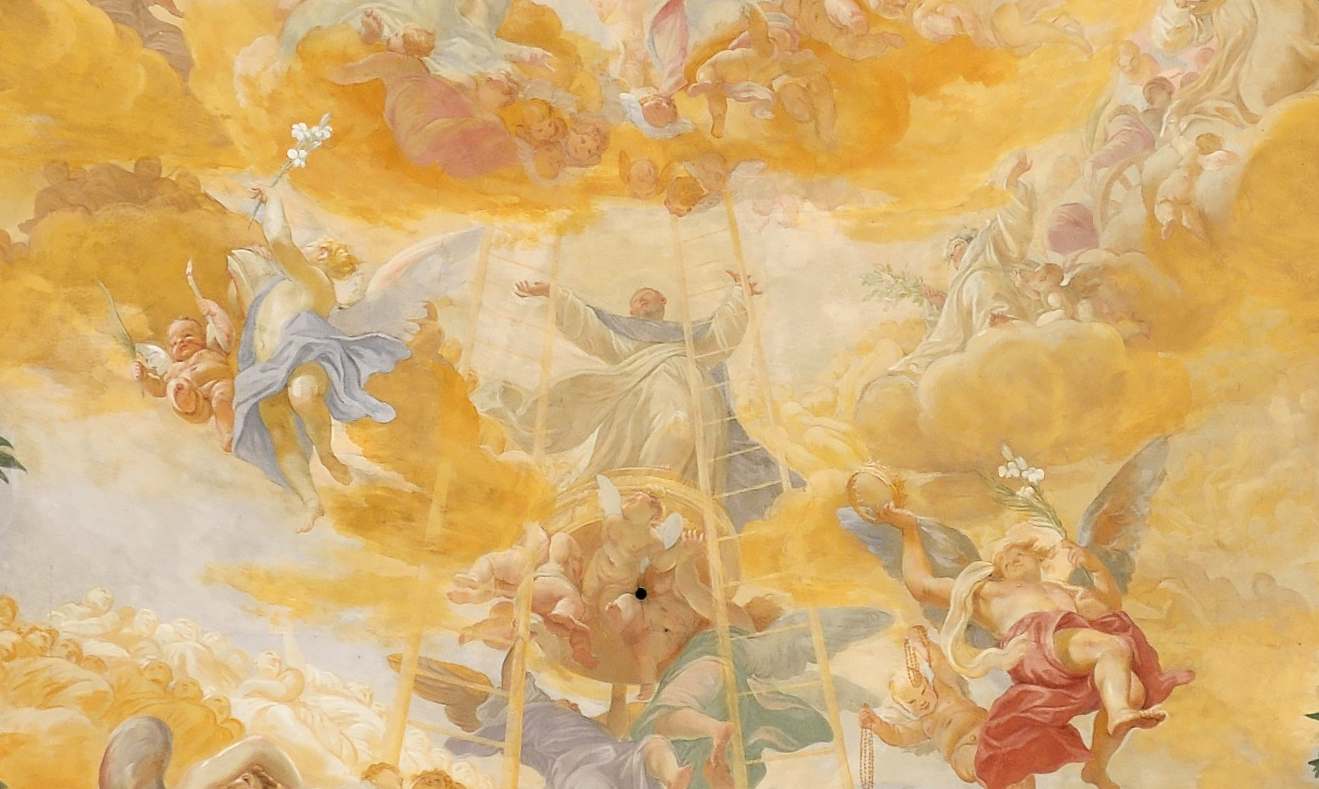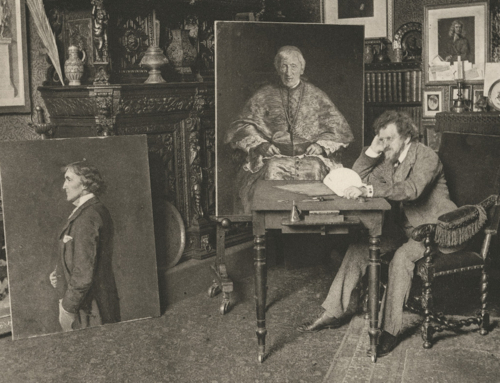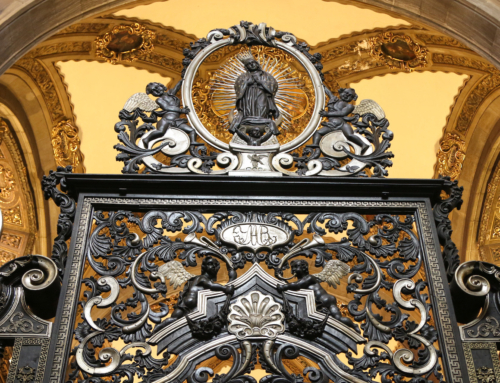Christianity is no mere ideology, a set of human goals with no power to save. Nor is it a natural religion, the aggregate wisdom of the sages who through long experience learned to get along in the world. It is instead a revealed religion, in which God has deigned to take the initiative and make himself known. But God did not show himself and disappear, to let us work out his teaching; instead, he became involved in history, choosing and preparing a people peculiarly his own.
But in these last days he has done more still. It was not enough to be involved in history. He himself entered history, by taking flesh in the womb of a virgin and, though truly God, becoming truly man. He remains present to us forever as a savior and intercessor. One way that he maintains his presence is by raising up saints in every age who, by imitating Christ in their own time and place, help to make him forever personally present to the world. These saints do not only teach what Christ taught, but they also do as he did and love what he loved. They do not only tell others the way, but in concrete ways help them to follow it.
In the thirteenth century, a heresy invaded from the east. These Albigensians, as they were called, denied the good of created matter, supposing that it was by nature opposed to spirit. Attempts to live out such a flawed doctrine gave rise to extremes of both asceticism and debauchery. The Christian faith could not sustain this teaching that made impossible one of the central claims of Christianity—that God did not spurn created matter, but, by taking flesh, perfected it.
And so, God raised up St. Dominic to carry on the work of Jesus in this troubled time. Dominic founded his order of preachers to preach against heresy in service to the Truth. But God is a person, not just an idea. When he raises up saints, he does so not to have an ideologue to debate the doubters, but in order to have someone to carry on the work of Christ, who not only preached, but was a living example of what he preached. St. Dominic, therefore, not only argued against this dualistic conception of spirit and matter, but, by seeking perfect holiness in his own body and soul, he lived the antithesis of the dis-incarnate theology of the Albigensians.
St. Dominic did not live in an artificial distinction between theology and living faith. He studied and preached, but also lived a life of heroic virtue. Nor did he live in a distinction between the active and contemplative lives. His whole life was one act of contemplation overflowing into his every work. He was a preacher who only spoke with God or about God. He did not practice asceticism because the body was evil, but in order to tame the body to accomplish a greater good. He travelled Europe, never having his own bed and often passing entire nights in prayer, just as Jesus travelled the Holy Land, preaching holy doctrine, with no place to lay his head.
St. Dominic is not known only for his heroic living and preaching. He saved many souls also through his intercession. During his all-night prayer vigils he was known to weep for the souls in Purgatory. This unfailing knowledge of the reality of sin and death led him not only to ceaseless work, but also to constant prayer for the salvation of souls. Not content to offer his prayers only in this life, he promised on his deathbed that, by his prayers, he would be more helpful to his brethren in death than in life. The patrimony he has bequeathed to his sons is not simply an institution but, by his prayers, a share in the grace which God first gave to him.
Jesus was not a teacher of ideas with no power of his own to save, but rather the Son of God who still works personally in our lives. So also Dominic was not a visionary founder of an institute of dialecticians, but a father who always looks after his sons.
✠
Image: The Apotheosis of St. Dominic (detail). [Photo by Livio Andronico 2013, (CC BY-SA 4.0)].







